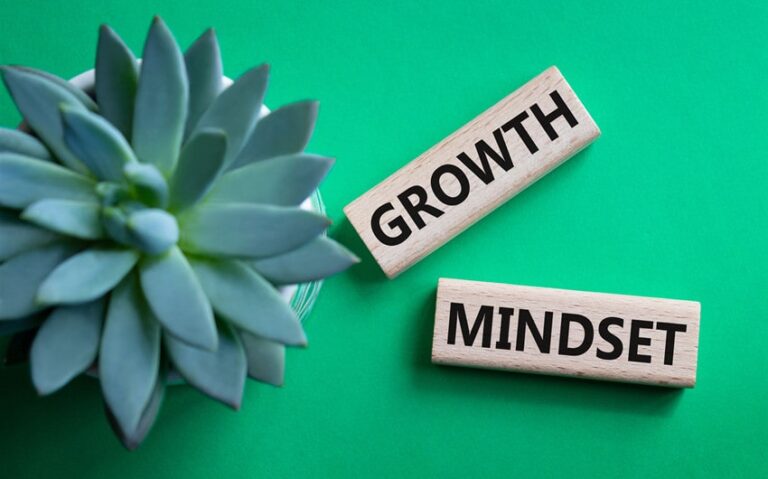How Your Mindset Affects Your Life: The Hidden Force Behind Every Transformation
Your mindset is not just the way you think—it’s the operating system behind every decision, habit, emotion, and relationship in your life. It colors your perception, influences your beliefs, and determines whether you see challenges as threats or invitations to grow. The truth is: you don’t see life as it is—you see it through the lens of your mindset. And if that mindset is fixed, fear-based, or limited, it quietly becomes the cage that keeps you small. But if it’s expansive, hopeful, and grounded in growth, your mindset becomes the door to your fullest potential. Here’s how it impacts every dimension of your life—and how to change it.
1. Mindset and Your Emotional Landscape
Your emotions are often shaped not by events themselves, but by how you interpret those events. That interpretation comes from your mindset. A fixed mindset responds to failure with shame: “I’m not enough.” A growth mindset sees failure as feedback: “Here’s what I’m learning.” This shift affects everything from how you process criticism to how you talk to yourself in difficult moments.
When you operate from an empowering mindset, you:
- Feel less reactive and more reflective
- Navigate tough emotions with curiosity instead of judgment
- Break free from destructive thought loops and catastrophizing
Your mindset isn’t just cognitive—it regulates your nervous system, resilience, and emotional maturity. The more open and compassionate your thinking, the more balanced your emotional life becomes.
2. Mindset and Self-Image: Who You Believe You Are
Your mindset builds your identity. If you believe your qualities are fixed (“I’m just not a leader,” “I’ll always be anxious”), you lock yourself into an outdated self-image. That creates a loop: beliefs create behaviors, which reinforce the original beliefs.
But when you adopt a growth-oriented identity—“I’m learning,” “I’m becoming”—you unlock psychological flexibility. You become someone in motion. This allows you to:
- Reclaim parts of yourself you’ve written off
- Challenge limiting narratives with compassion
- Step into new roles that once scared you
Who you believe you are shapes every choice you make. And your mindset is the foundation of that belief system.
3. Mindset and Relationships: The Energy You Bring to Others
Every relationship you have is affected by your mindset—how you communicate, listen, resolve conflict, and show love. A scarcity mindset breeds defensiveness and comparison. A fixed mindset judges others harshly or avoids vulnerability. But a growth mindset in relationships opens space for:
- Forgiveness and second chances
- Belief that people can grow and evolve
- Conflict as a path to deeper understanding, not disconnection
This applies to all relationships—romantic, familial, professional. When you believe in transformation (yours and theirs), you interact with more grace, patience, and emotional safety.
4. Mindset and Career: How You Approach Success and Failure
Your professional growth depends as much on mindset as on talent. People with a growth mindset take initiative, pursue feedback, and bounce back after rejection. They’re not discouraged by challenges—they’re energized by them.
With a fixed mindset, you might:
- Stick to roles where you feel safe, even if unfulfilled
- Interpret constructive feedback as personal failure
- Resist change or innovation for fear of appearing incapable
But a growth mindset fosters:
- Willingness to learn new skills and technologies
- Curiosity about what’s possible in your industry or career
- Confidence in your ability to adapt and pivot when needed
Success is no longer about perfection—it becomes about progress. And that’s what keeps you growing upward, even after detours.
5. Mindset and Learning: How You Process Knowledge
In school and beyond, your mindset dictates whether you stay engaged or check out. People with a growth mindset don’t expect to “get it” right away—they trust that understanding will come with time, mistakes, and exploration.
This mindset helps you:
- Enjoy learning for its own sake—not just for validation
- Explore unfamiliar ideas without shame
- Experiment, iterate, and problem-solve creatively
Neuroscientifically, this is supported by neuroplasticity—the brain’s ability to change through experience. The more you believe you can grow, the more your brain literally rewires itself to make it true.
6. Mindset and Health: The Psychology of Wellness
Even your health is impacted by how you think. People who believe they can improve their habits are more likely to:
- Recover from illness faster
- Stay committed to fitness and nutrition goals
- View setbacks as temporary, not defining
A fixed mindset leads to all-or-nothing thinking—missing one workout becomes “I’ve failed.” A growth mindset allows for flexibility: “One slip doesn’t undo my progress. I’ll start again.” This creates consistency and long-term change.
7. Mindset and Decision-Making: Fear vs Freedom
Mindset influences how you make decisions—especially under uncertainty. A fear-based mindset leads to overthinking, avoidance, or impulsivity. But a growth mindset helps you:
- Trust your capacity to figure things out
- Take aligned risks even if the outcome isn’t guaranteed
- Use logic and intuition together instead of being paralyzed by doubt
With a growth mindset, decisions become opportunities to grow—not perfect choices you have to get “right” every time. That shift alone changes how you navigate life transitions, career moves, or creative leaps.
8. Mindset and Adaptability: Thriving in Change
Life is dynamic. Relationships evolve. Careers pivot. Unexpected events happen. A fixed mindset tries to cling to what’s known, even when it no longer works. But a growth mindset develops what psychologists call “psychological flexibility.”
This lets you:
- Reframe challenges as catalysts for growth
- Let go of what no longer fits without falling apart
- Grieve endings while staying open to new beginnings
Mindset determines not whether you’ll face change—but whether you’ll break down or break open.
9. Mindset and Creativity: Permission to Explore
Creativity requires risk. It requires making messy things and not knowing how they’ll turn out. That’s why people with a fixed mindset often avoid creative expression—they fear being judged or getting it “wrong.”
A growth mindset in creativity means:
- You give yourself permission to play and experiment
- You separate your worth from your output
- You focus on process, not perfection
Whether you’re painting, writing, building a business, or parenting creatively, mindset is what gives you freedom to invent—and reinvent—yourself.
10. Mindset and Spiritual or Existential Growth
Even your spiritual evolution is impacted by mindset. A fixed spiritual mindset might say, “This is who I am, this is what I believe, and it can’t change.” But growth-oriented spirituality is rooted in questions, wonder, and humility. It asks:
- What am I still learning?
- Where can I soften or deepen my understanding?
- What else might be possible for my healing, purpose, or legacy?
Growth mindset invites you to evolve spiritually—to move from dogma to discovery, from fear to freedom, from rigidity to transformation.
Final Reflection: Your Mindset Is the Soil for Your Future
Your mindset is not just how you think—it’s what you believe is possible for your life. And like soil, it determines what grows. With fear, nothing thrives. With belief, effort, and openness, anything is possible. If you want a different future, don’t just change your habits. Change your lens. Because when your mindset changes, everything else follows.






